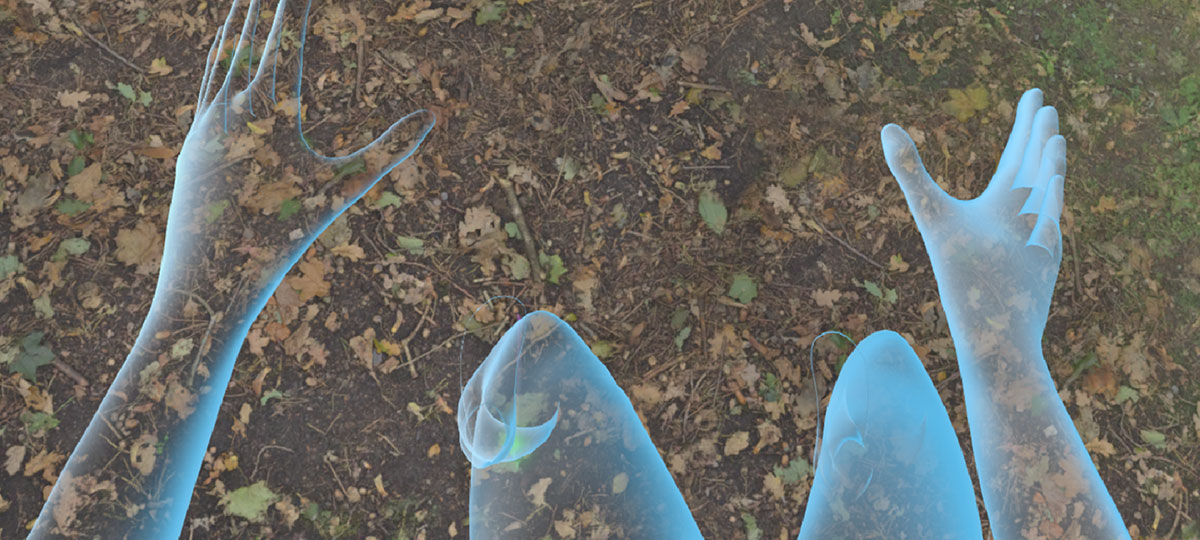Digital Healthcare and Medtech News
9 Sept, 2020
Digital therapy for anxiety using mindfulness treatments in virtual reality (VR).
How my mhealth, Bournemouth University and Innovate UK joined forces to tackle mental health with a VR app.
At my mhealth we strive to improve the health and quality of life of people and see technological innovation as an exciting vehicle to achieve this. Our teams of doctors and technologists are constantly looking for new treatments and technologies to help meet our ambitions, be it self-management, education, rehabilitation, interventions or therapeutics. And not just for the few, we want to do this at scale, so everyone gets the chance to benefit
This is what my mhealth is all about.
We've done it for COPD, we've done it for asthma, diabetes and heart disease. And now we've done it for mental health.
The prevalence of anxiety disorders across the world varies from 2.5 to 7 per cent by country. Globally an estimated 284 million people experienced an anxiety disorder in 2017, making it the most prevalent mental health or neurodevelopmental disorder (1).
Mental health is without a doubt an illness that can be significantly improved using digital therapeutics such as virtual reality, and global investment in digital therapeutics is higher for psychiatry than any other type of illness.
That's why in 2019 we invested in a study to understand the effectiveness of virtual reality therapy for anxiety-related mental health conditions. In a collaborative partnership with Bournemouth University and Innovate UK, Robert Farthing, our VR developer, has built a digital therapy using immersive VR as a treatment for anxiety.
Rob Farthing, the principal developer told us:
"Over the past few months, there has been much discussion of mental health, so this project feels more relevant than ever, having the potential to help people who are isolated through creating a means of teaching mindfulness to manage stress and anxiety digitally. During the lock-down, we are seeing increases in adoption of technology to stay connected; there are also ongoing studies into how VR in particular is helping to address the psychological effects of global quarantines through travelling to relaxing virtual locations."
The digital therapy treats patients using existing cognitive behavioural therapy (CBT) and mindful meditation techniques and is designed to complement rather than fully replace traditional therapy delivered by a therapist.
The VR mindfulness app enables people to focus on relaxation techniques without the distractions of the outside world. The immersion offered by virtual reality gives people a sense of 'presence' in a 3D computer-generated world, helping them to practice mindfulness in a controlled manner.
Handheld controllers connected to the VR headset, or the headset itself, track the user's motions during exercise, meditation and breathing exercises and patients can see a representation of themselves in the world we've created. Patients can even go as far as interacting with the landscape. For example, picking up a flower and focusing on the petals, changing the colour of their petals one by one. Or strolling through the virtual landscapes.





We're very excited to see the outcomes of the first real-world trials and to develop the VR software further. With the cost of VR headsets falling, and VR technology advancing rapidly, the cost and speed of delivering this type of therapy via VR will be more efficient than traditional methods. We envisage that therapists will loan patients the VR headsets with our software pre-loaded to complete their treatment in the comfort of their own homes.
1. Mental Health by Hannah Ritchie and Max Roser, 2018.
If you'd like to find out more about digital therapeutics or want to know more about how we can help you or your patients get in touch here or call us on 0044 (0)1202 299 583.
Topics
virtual reality vr digital therapy mindfulness vr appFurther information
Email: info@mymhealth.com
Call: +44 (0)1202 299 583






